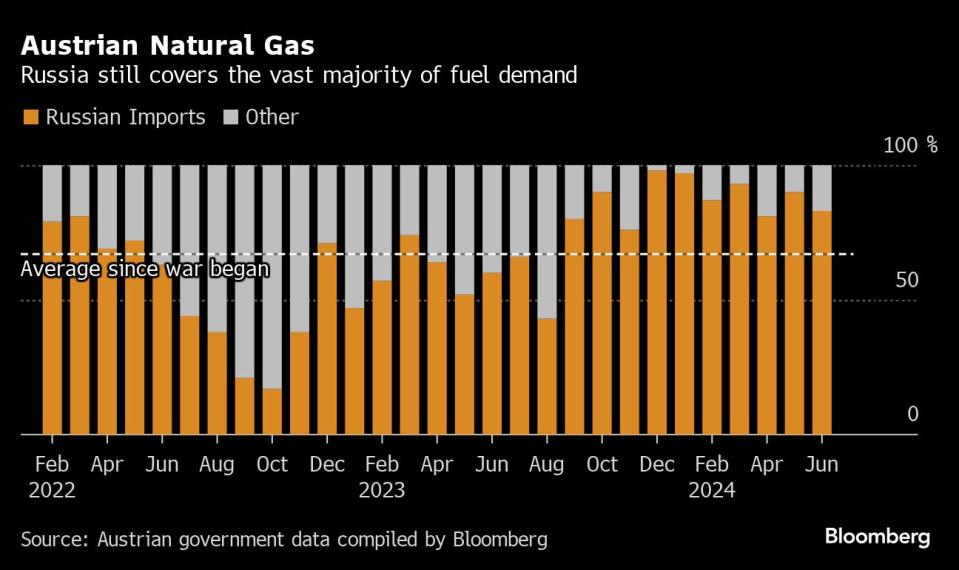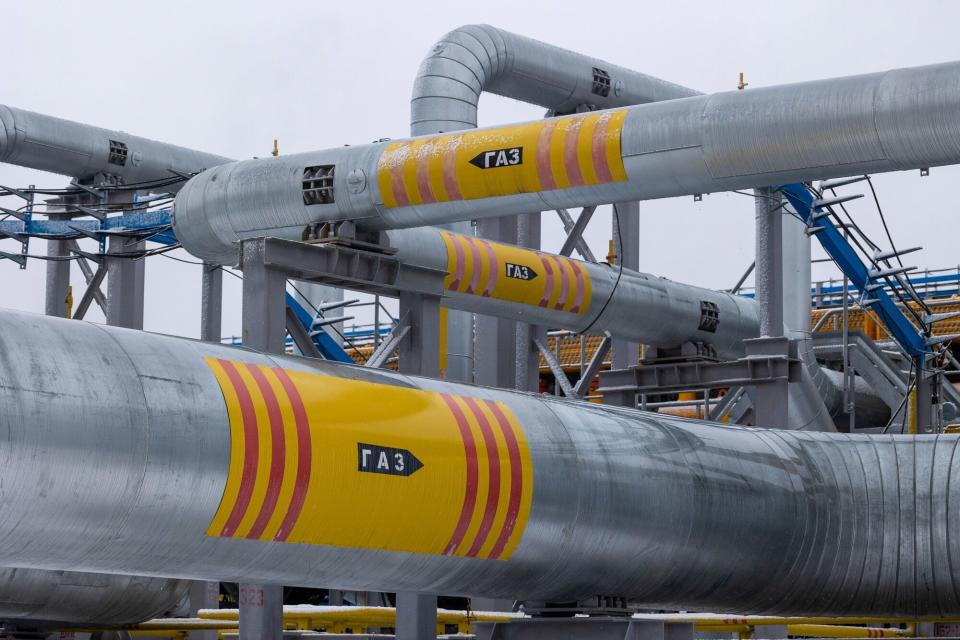Austria Sees ‘Massive Risk’ From Halt to Russian Gas Flows
(Bloomberg) -- Austria sees a “massive risk” from a sudden stoppage of Russian natural gas flows, which continue to feed the central European nation’s export-oriented heavy industries.
Most Read from Bloomberg
How Chicago’s Gigantic Merchandise Mart Is Still Thriving as Office Space
Gottheimer Calls for Rail Riders to Be Reimbursed for Delays
Los Angeles Sees Remote Work Helping ‘No Car’ 2028 Olympic Games
European fuel prices have soared after an incursion by Ukrainian troops near a key cross-border transit point in Russia, prompting energy officials and traders to reassess the probability of a supply interruption.
“As long as there is a dependency on Russian gas supplies, there is a massive risk of a corresponding supply failure with far-reaching consequences,” Austria’s Energy Ministry wrote late Monday in response to questions. “We must end Austria’s dependency on Russian gas supplies as soon as possible.”
Austria’s ruling coalition has pledged to end Russian gas imports by 2027 as part of a broader transformation of the country’s energy system. The government is expected to present a detailed road map ahead of national elections on Sept. 29.
Even without Russia gas, Austria has enough pipeline capacity over Italy and Germany to cover more than double its annual demand, according to a government report published in June. Transit capacity will rise to 212 terawatt-hours annually in 2027, from about 185 terawatt-hours this year.
Austrian fuel consumption was down about 23% in the first half of this year compared with average demand of 91 terawatt-hours before Russia invaded Ukraine in February 2022. Last year, the country used just 75 terawatt hours of gas.
Should Russian flows stop abruptly, and Austria isn’t able to ship more fuel over Italy, gas in storage could sink to just 15% of capacity by 2026, according to the worst-case scenario published by the government. A more likely scenario envisions Russian supplies stopping from January 2025, new shipments over Italy satisfying rising demand and storage at 60% full heading into 2027.
Austria has maintained one of Europe’s oldest and deepest connections to Russian energy, and in 2018 extended a long-term gas contract to 2040.
State-owned OMV AG, the country’s biggest fossil-fuel company, grew out of Austria’s post-World War II independence treaty that handed over Soviet-controlled energy assets in return for the nation’s neutrality.
Most Read from Bloomberg Businessweek
Inside Worldcoin’s Orb Factory, Audacious and Absurd Defender of Humanity
New Breed of EV Promises 700 Miles per Charge (Just Add Gas)
The Fake Indian Cricket League Created for Real Online Betting
There’s a Gender Split in How US College Grads Are Tackling a More Difficult Job Market
©2024 Bloomberg L.P.


